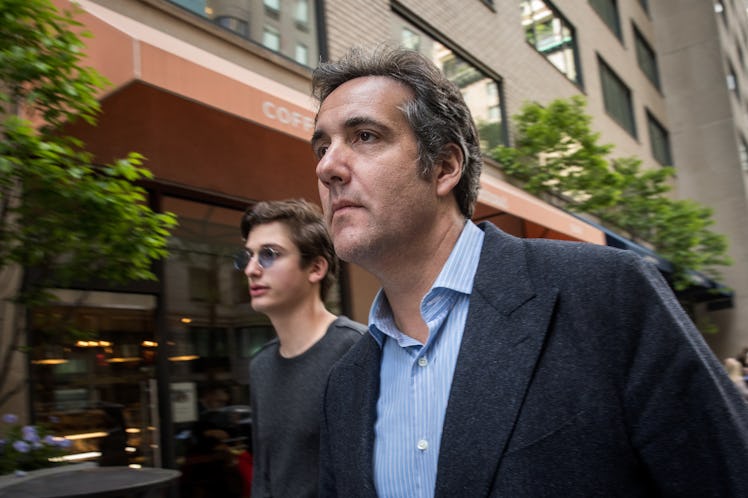
Trump's Lawyer Michael Cohen Reportedly Threatened 'The Onion' & It's Too, Too Ironic
President Donald Trump regularly attacks the so-called "fake news media" in his position at the White House. His usual targets have been what he identifies as "liberal news media" organizations, such as CNN, NBC, and The New York Times. But as it turns out, his legal staff targeted media that is actually fake news with a serious legal threat at least once in the past, which doesn't exactly make an substantive sense. Michael Cohen reportedly threatened The Onion with a defamation lawsuit, and I'm not so sure Cohen understands what the website's actual purpose is.
The website revealed the email that Cohen reporetedly sent to The Onion, a satirical site, back in January 2013 via Twitter on May 22. A spokesperson for The Onion confirmed the (serious) veracity of the letter, and Elite Daily reached out to Cohen's lawyer for confirmation, but did not hear back at time of publication.
The screenshot of the email seems to show Cohen demanding the removal of an article concerning Trump from their website — or else. The article, titled "When You're Feeling Low, Remember I'll Be Dead In About 15 Or 20 Years," was published by The Onion as if it were written by Trump himself. And obviously, knowing the satirical nature of the site, it was meant to be a joke.
But Cohen didn't exactly seem to understand that, as evidenced in his threatening email. Cohen identified the article as "allegedly penned by Donald Trump," and explained the reasoning for his email. The letter states, in part,
Let me begin my stating the obvious...that the commentary was not written by Mr. Trump. Secondly, this article is a absolutely disgusting piece that lacks any place in journalism; even in your Onion. I am hereby demanding that you immediately remove this disgraceful piece from your website and issue an apology to Mr. Trump.
According to the email, Cohen continued to say that the commentary in the article "goes way beyond defamation," and implied that if the piece was not immediately removed, he'd take the necessary legal measures against The Onion. He appears to have capped off the email with a Sopranos-style threat — "Guide yourself accordingly." Dun dun duuuuuun.
I'm not exactly sure if Cohen understands what The Onion is all about. Unless you've been living under a rock or know nothing about media in the United States, you know that The Onion is a satirical publication. Practically nobody reads an article from The Onion and assumes that it's true.
Sure, I've been tricked by The Onion into thinking an article of theirs is factual a couple of times — hasn't everyone? But the minute I realize that an article I (for a moment) believed to be true is embossed with The Onion's logo, I know that the piece is a work of satire.
The Onion unearthed the reported years-old email from Cohen in light of Trump's presidency and wrote about it in an article published on May 22. In that piece, the site states that letters threatening to sue them are typically dismissed "as the baseless accusations they are." The letter they reportedly found from Cohen has caused them to reconsider this policy. The editorial staff from The Onion said that they'll remove the aforementioned article from their site "in exchange for influence over the president’s decision-making." In the article, The Onion explains,
While it is generally not our policy to let outside forces affect our editorial decisions, the opportunity to gain a direct line to the president clearly presents a special case.
I mean, that seems like a pretty fair deal, if I do say so myself. I wonder if Cohen will respond this offer seriously — or if he's figured out by now that The Onion is everything but a serious news publication.
If Cohen is still confused by this article from The Onion, consider me concerned. If the president's personal lawyer couldn't discern actual defamation or slander from journalism that's satirical and protected under the First Amendment, that makes me question his authority on any legal matter that he's involved with.